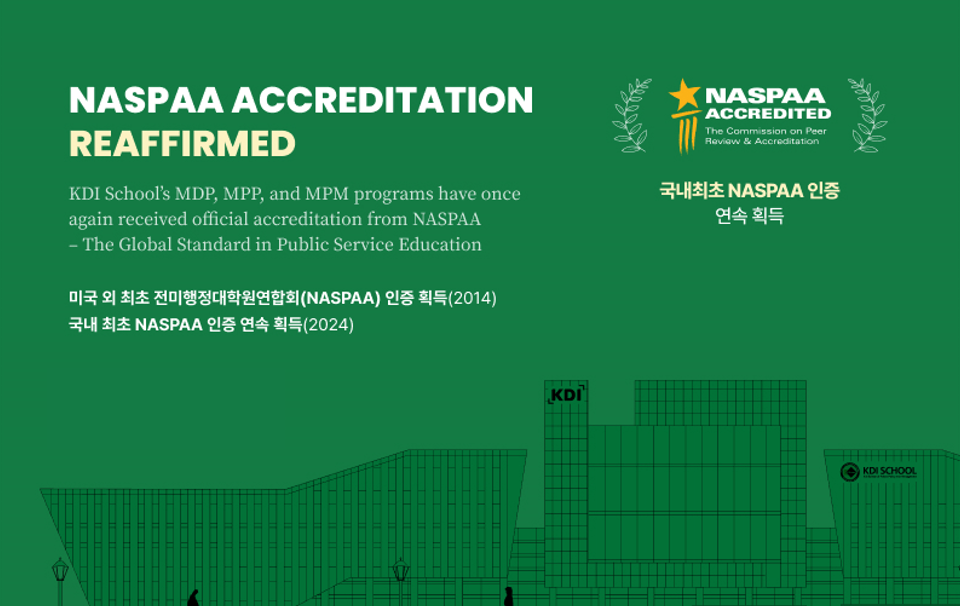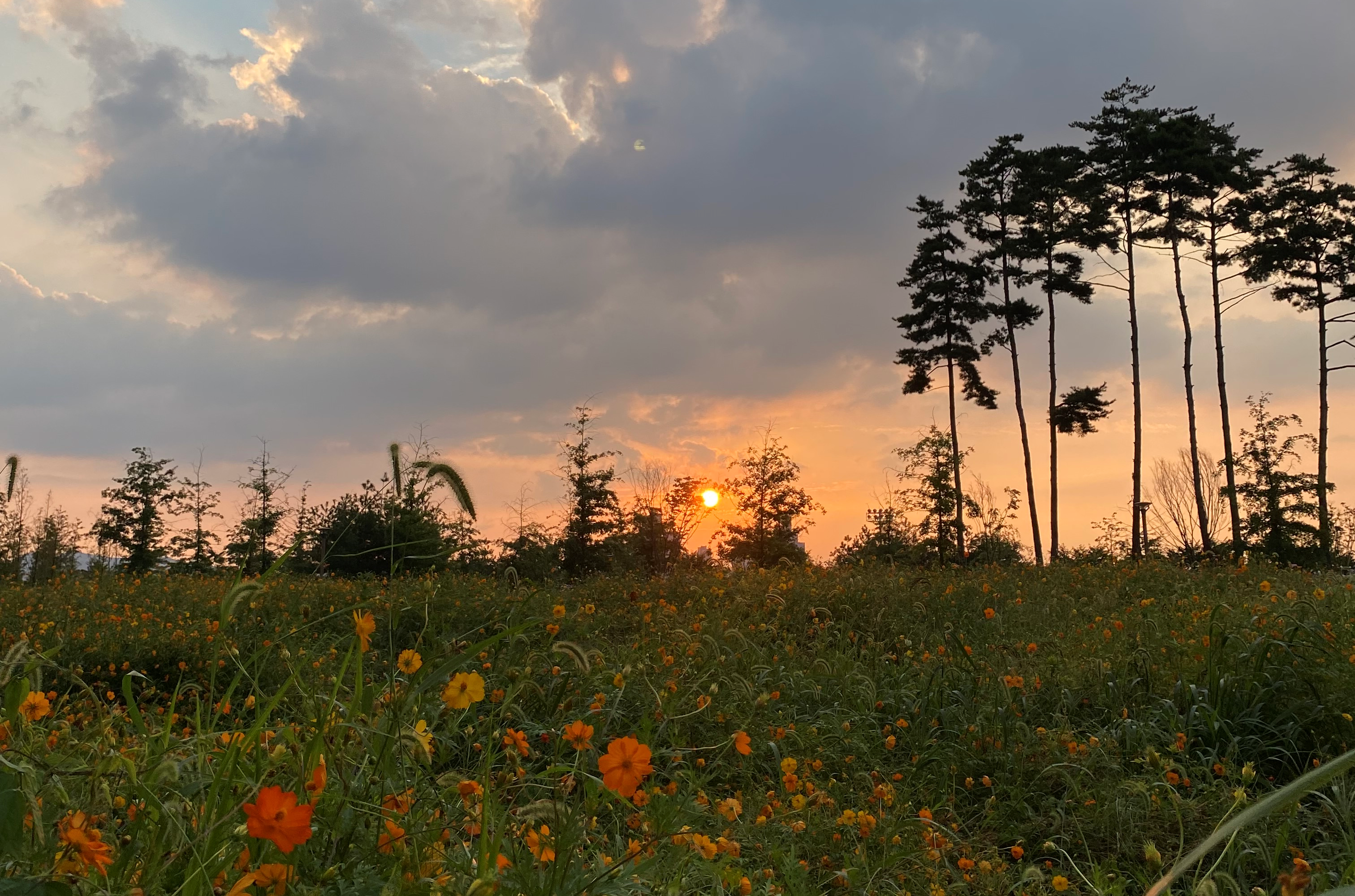
Talking about SDGS - Tegene Hailu Mengste (2020 MPM)
- Date 2021-11-23 00:01
- CategoryStory
- Hit2166
Greetings, Tegene! Before we start discussing the SDGs, can you give us a little background information about you and your previous experience?
First, I would like to thank KDI School for this wonderful opportunity to speak on the topic of sustainable development goals (SDGs) from the perspective of my experience. My name is Tegene Hailu, and I am from Ethiopia, located in the horn of Africa. I have a BA degree in economics and a master’s degree in public policy studies, and I have been attending Master of Public Management (Regulation Management for Economic Development) since August 2020 at KDI School of Public Policy and Management sponsored by the Korea International Cooperation Agency (KOICA). Moreover, I have been working for the Planning and Development Commission (PDC) of Ethiopia since 2015. In this regard, I was a director of the Development Project Performance Monitoring and Evaluation Directorate. The PDC has been mandated by the current administration to prepare, monitor, and evaluate the implementation of the country’s development plan and conduct various studies. As part of the organization, I have the opportunity to work with SDGs when we harmonize our national long- and medium-term development plans involving SDGs at the goal, target, and indicator levels. Indeed, Ethiopia was the first country in Africa to take part in the first SDG voluntary review and presented its report to the United Nations High-Level Political Forum in 2016. I was one of the team members among the voluntary review report organizers. My reviewing of the SDG report provides me with great experience in dealing with SDGs.
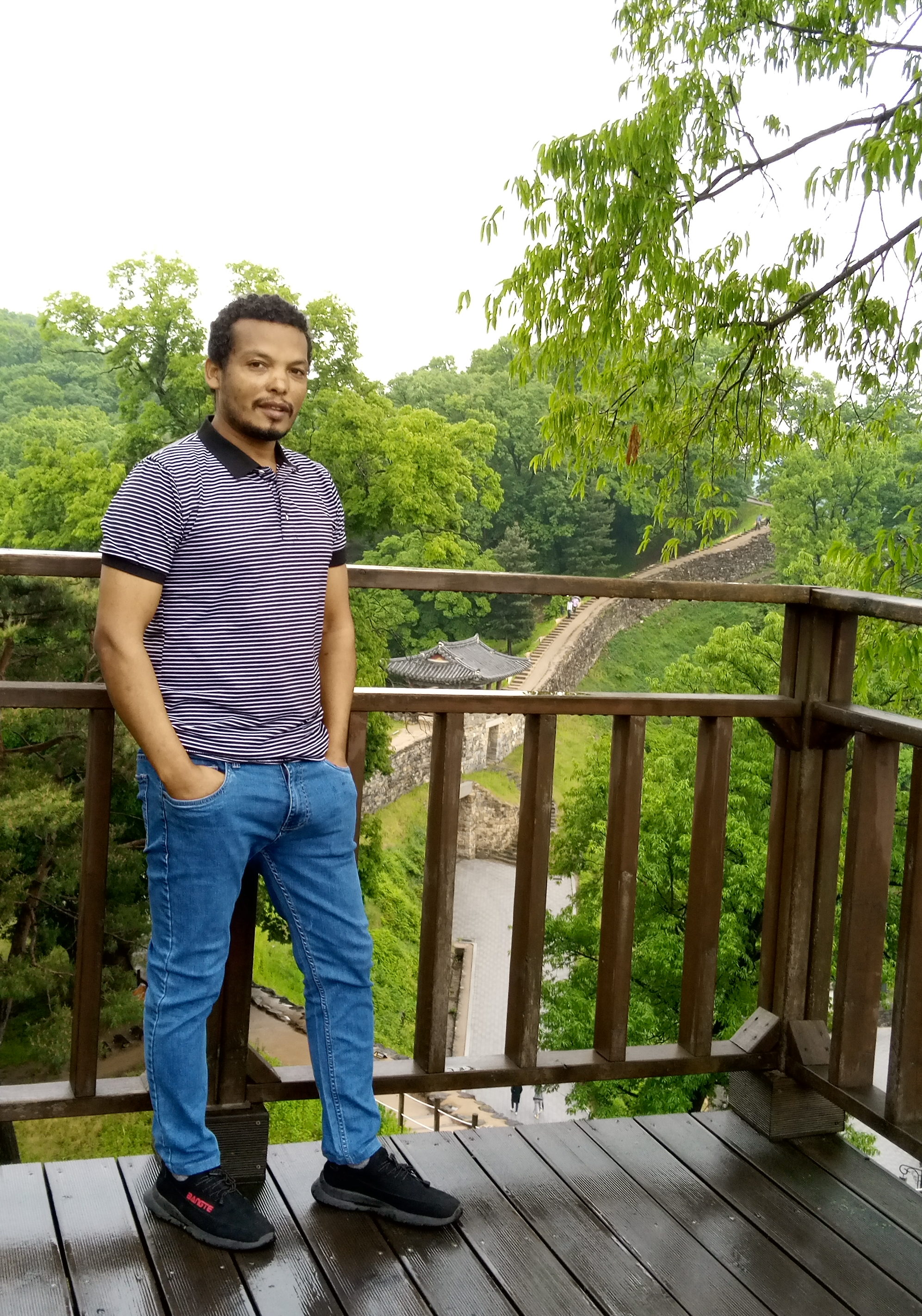
Of the 17 goals, are there any that are more relevant to job experience?
As a member of the Planning and Development Commission, my daily responsibilities are greatly attached to most SDGs. However, I am mostly interested in goal 13, climate change, because without a green economy, we could not even consider the existence of the world nation''s life, let alone the implementation of sustainable development. Therefore, I believe that the natural environment forms the basis of everything and is today’s top-priority agenda of the world. The climate is a cross-cutting issue, and its effect crosses boundaries and requires the all-around involvement of world leaders, non-governmental organizations, international organizations, environmental experts and activists, students, academic institutions, sector ministries, and other concerned stakeholders. To realize such mainstreaming and coordination with well-integrated planning, implementation and monitoring are pertinent to achieve the goals as intended. To this end, I have experience in technically advising sector ministries on how to integrate their plans with the stated targets and indicators of goal 13, especially how sector ministries must have a common plan and shared responsibilities based on their mandate. Predominantly, greenhouse gas emissions reduction could be achieved by the efforts of many sector ministries and international organizations rather than only a single sector.
How long have you been involved in development work?
I have been working in the development sector for more than nine years. Before joining the Planning and Development Commission, I worked for the Charity and Society Agency for about three years as an assistance expert of monitoring and evaluation. Moreover, I have worked with many charitable organizations focused on addressing climate change, and I worked for the Planning and Development Commission for about 6 years. The organization''s responsibilities are to enhance the socio-economic development of the country, reduce the number of people who live below the poverty line, and ensure sustainable development. In general, I have acquired good experience in the development arena. At KDI School, I have been taking courses directly related to sustainable development to gain further knowledge and contribute more in my professional career to my home country. In this regard, KDI School has served as a valuable opportunity for me to acquire practical knowledge, skills, and wisdom and learn from the first-hand source of South Korea''s economic development.
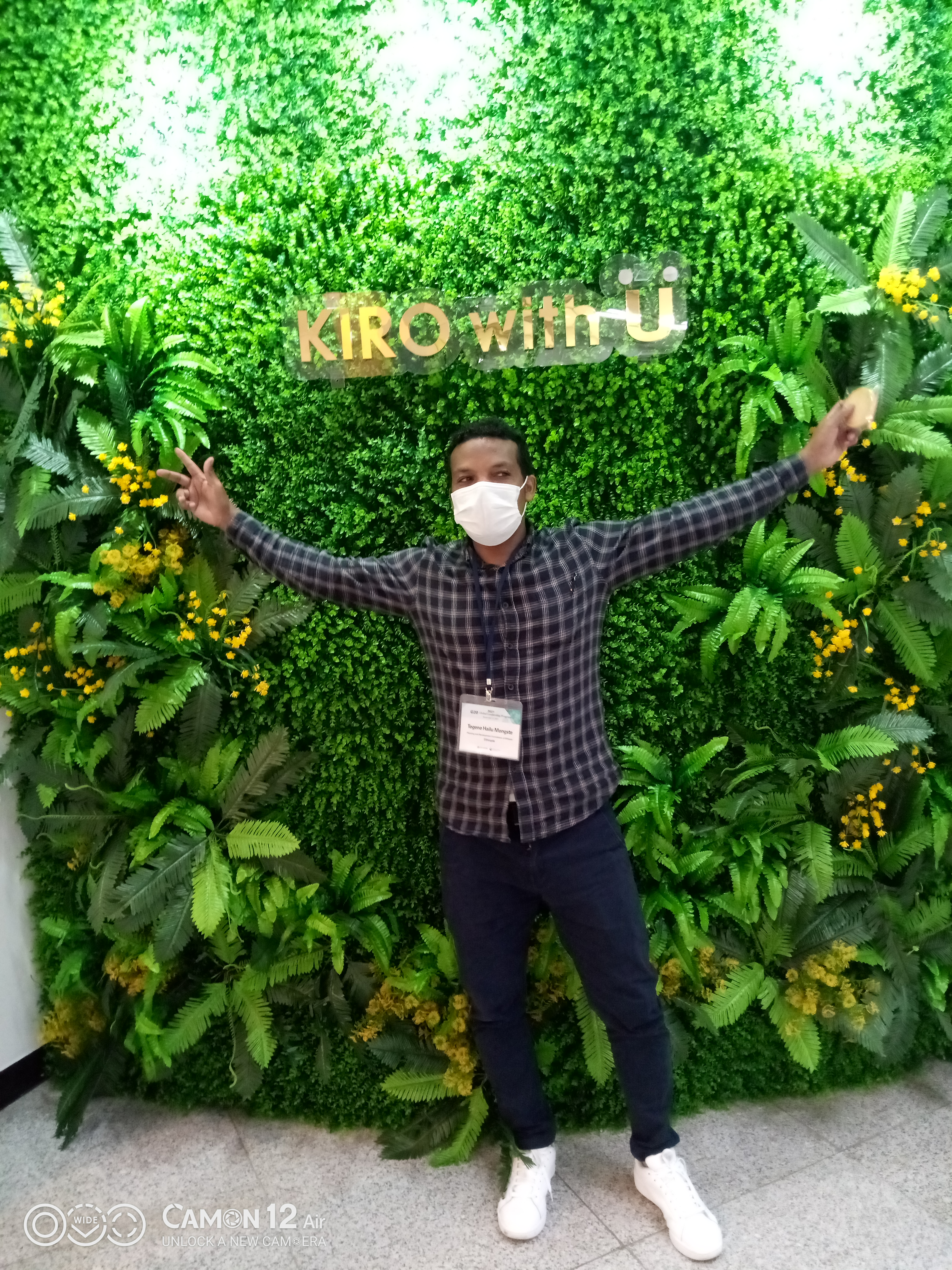
Why did you decide to enter into the field of sustainability? Please tell us what interests you most about this specific role.
We need to ensure that every citizen of our country can escape the poverty trap by increasing their income, providing basic needs such as secure food, good health, and education facilities, and enabling them to ensure sustainable life. As we are all aware, carbon-free is essential to building a green economy, which would enable the world economic development to be sustainable. To accomplish this, we must reduce the carbon effect, decrease pollution and carbon trading, and create climate change awareness, financing, technical capacity, and cooperation among the nations, serving as the basic element to realizing goal 13. We must create an appropriate development plan in a coordinated manner by prioritizing our development through properly managing scarce resources efficiently and effectively by engaging citizens and other development partners. Sustainable development is the only option available to us and ensures the fate of the future generation. Unless we struggle to achieve the long-term impact of positive climate change, our development destination might encounter challenges ahead of time. Today, our world is experiencing the effect of climate change, which demonstrates a direct effect on increasing the average temperature and changing rainfall patterns. Especially its impact on developing countries is too severe, as their economies are highly dependent on agriculture, which is primarily rain fed. Therefore, it is necessary to have an economy free from the adverse effect of global warming. The Federal Democratic Republic of Ethiopia''s government has launched the Climate-Resilient Green Economy (CRGE) initiative in 2011 to protect the country from the negative effects of climate change and develop a green economy that will help Ethiopia to achieve its goal of becoming a middle-income country by 2025. I believe that we have been doing well in terms of implementing carbon-free development projects, such as the implementation of hydropower, wind and solar energy, electric usage railways, re-afforestation to make the economy green, and contributions to the reduction of carbon from the globe. From 2018 onward, the country has been planting more than 4 billion trees each year. The government of Ethiopia believes that climate change will not be solved by only one nation but through inter and intra collaboration. As such, the government of Ethiopia has taken initiatives to scale up the planting of trees to the neighboring countries of Kenya, Sudan, South Sudan, Djibouti, Somalia, and Eretria by distributing tree seedlings. This could be viewed as one of the best experiences to these other regions.
Could you please tell us about a recent challenge you faced while working on a sustainability project? How did you overcome it?
Beyond the above efforts, climate change is accompanied by many challenges. We have been experiencing the irregularities of rainfall, which has impacted our agriculture; caused high flooding in low land areas and recurrent droughts that displaced many people from their homes; the degradation of lands and loose loom soils make the land very poor, thereby decreasing the productivity and production of crops; rivers and lakes are drying and significantly losing their volume; a lack of technical capacities to measure the GHGE, a lack of finance especially for developing countries, a lack of ownership and belongingness among all sector ministries rather than the assumption that it is to be decided by the designated institutions, a lack proper cooperation from the advanced countries; and countries not recognizing the issue of climate equally, which creates irregularities among the world and makes it difficult to culminate climate change in a coordinated manner.
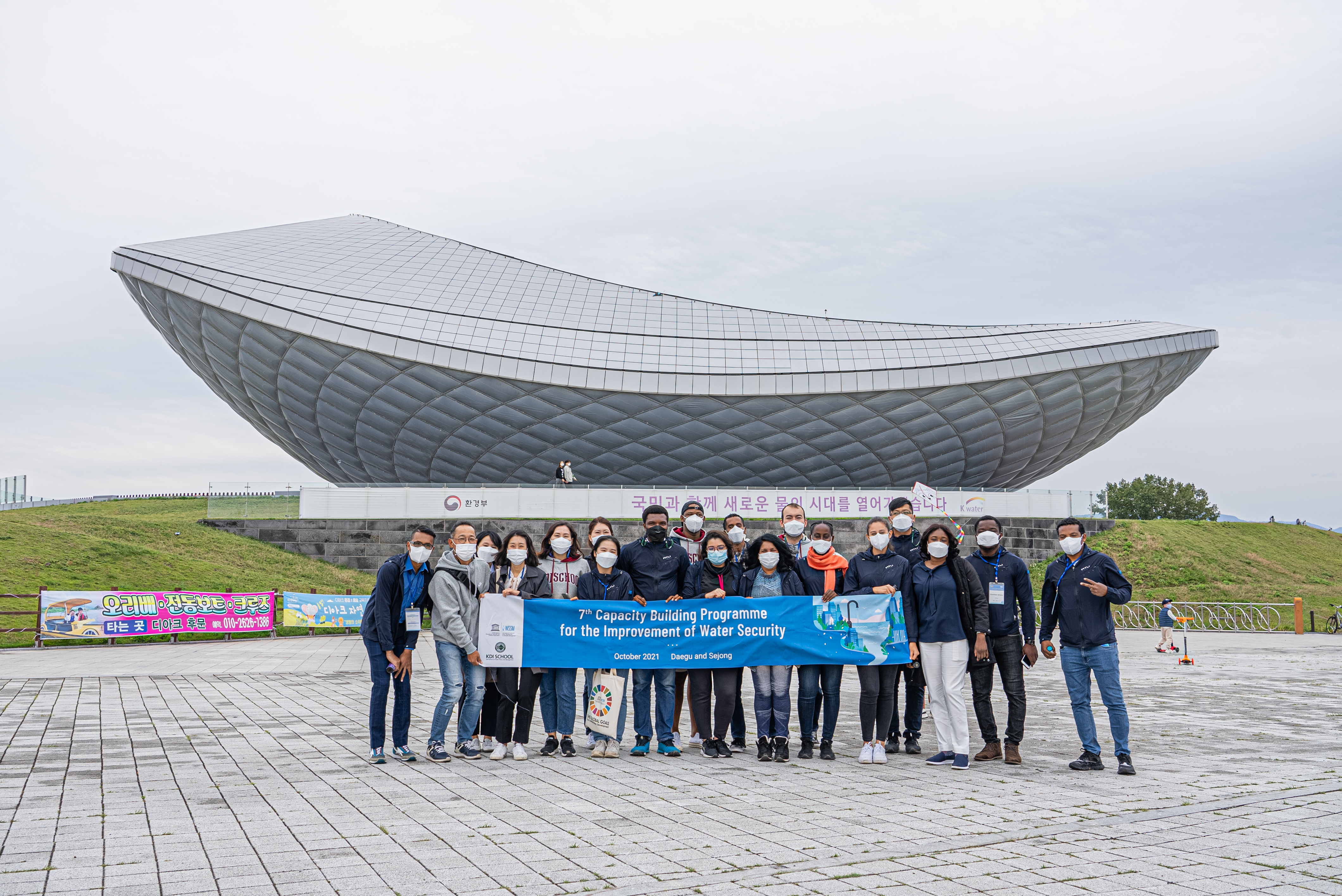
Thank you so much for your time and for participating in this interview! Is there anything you would like the reader to take away from all this information?
Finally, global warming becomes a universal challenge that the world nations must strive to combat sooner rather later. Students of KDIS coming from different countries must adopt the experience of the South Korean government’s effort on climate change and environmental conservation. I had the opportunity to travel to different parts of the Korea program sponsored by G20 and UNESCO i-WSSM. At that time, I observed the impressive commitment of the Korean government to restoring the forest. Namely, almost 60% of their land is covered by forest: green construction, water treatment, green power generation, and so on. I strongly advise that the world adopt this as this best practice. Korea is eager to share its wisdom as well. The advanced countries represent the source of global warming compared with the developing world, so accordingly, they must make efforts to reduce carbon emission and provide technical and financial support to developing countries. The developing countries should do whatever possible to conserve their natural environment. Finally, the world requires heartfelt partnership to promote strong solidarity and cooperation to achieve goal 13 climate change and develop a green economy to support poverty reduction and ensure sustainable development. Thank you so much!
Related News
-
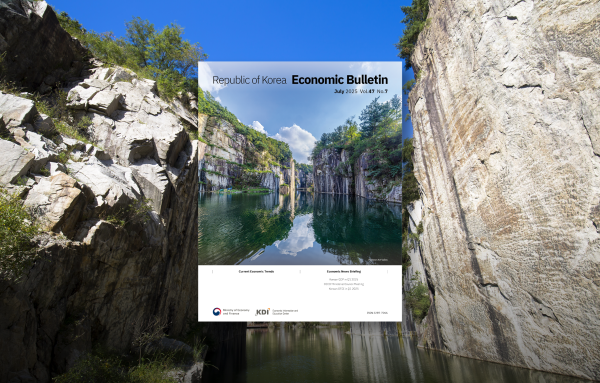
Research and Education12 days ago
Republic of Korea Economic Bulletin, July 2025#KDI #Economic #KDISCHOOL #kdischool #Economic Bulletin #Research
-
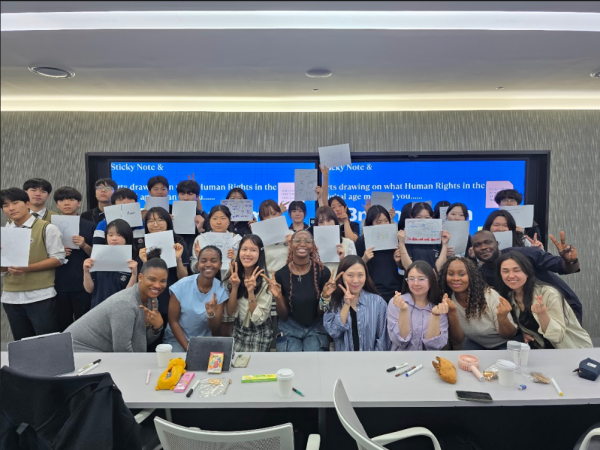
Story15 days ago
Summer 2025 Talent Donation Program: KDIS Forums Host Sejong High School Students#KDISCHOOL #KDIS #student #talent donation #student forums #student clubs
-
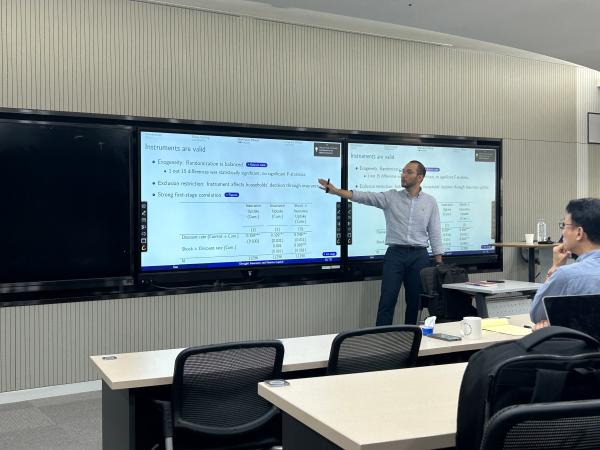
Research and Education16 days ago
Research Seminar by Hyuk Harry Son from Utrecht University

